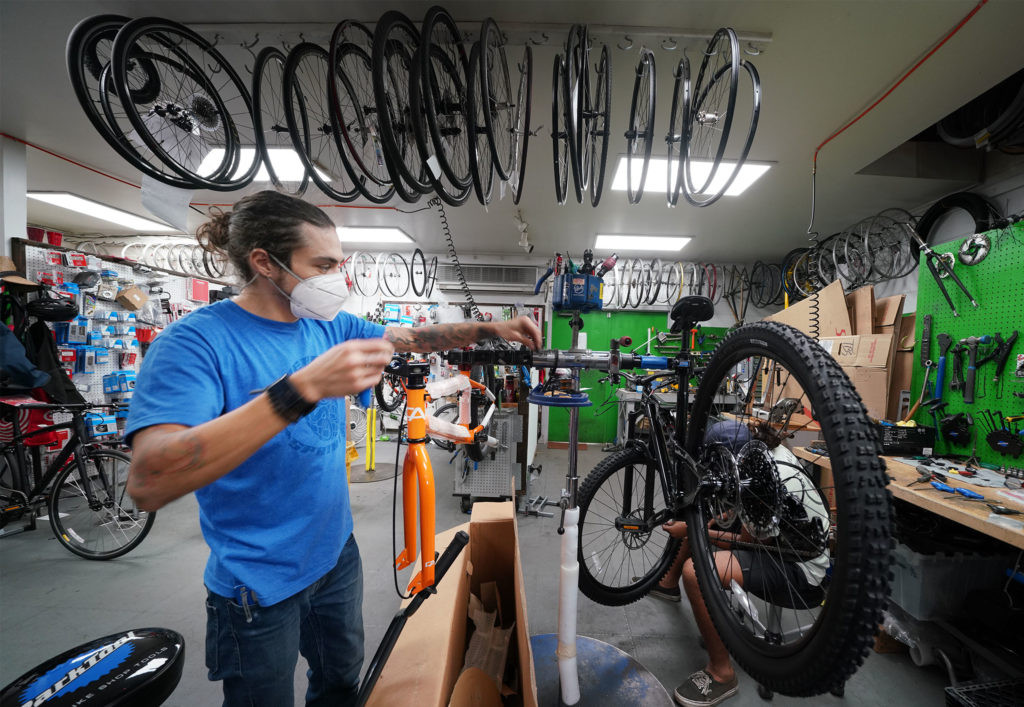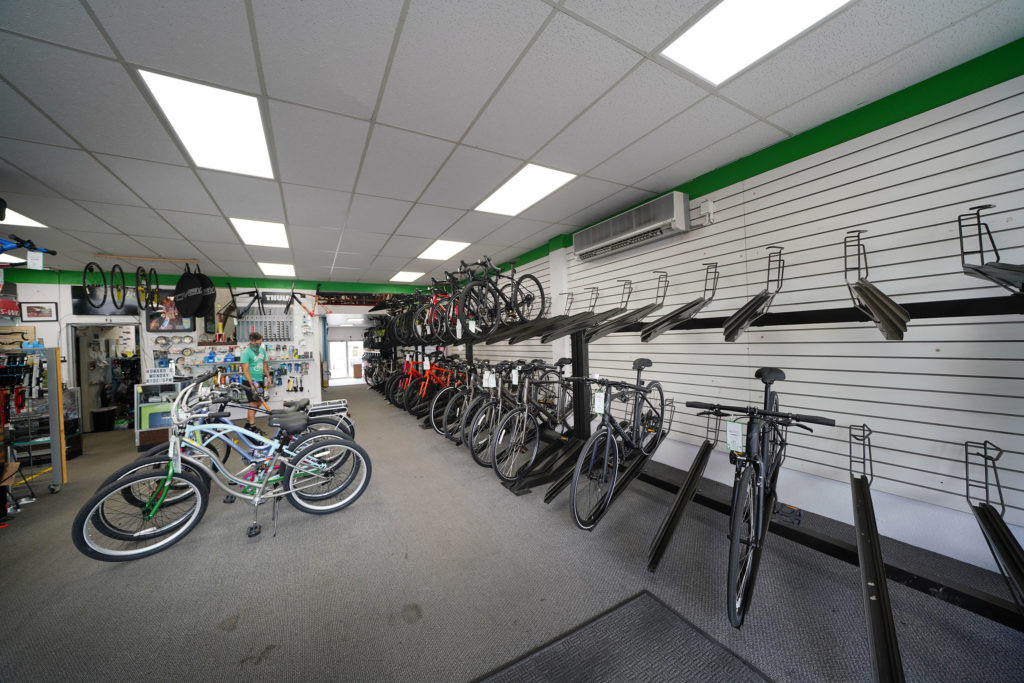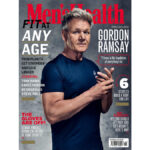Across Oahu, the COVID-19 pandemic has reshaped daily life in countless ways. Beyond the well-documented shortages of toilet paper and hand sanitizer, another unexpected commodity has become highly sought after: the humble bicycle. Local bike shops, particularly McCully Bicycle and Sporting Goods, have found themselves at the heart of this surge, experiencing unprecedented sales and a demand for repairs that has left showroom floors looking uncharacteristically bare.
For Mccully Bike Store, located prominently in Honolulu, the pandemic has brought a wave of business unlike anything seen before. What was once a normally stocked showroom is now often sparsely filled, with new bike shipments practically selling out as soon as they arrive. Co-owner Ali Kessner of McCully Bicycle and Sporting Goods notes a staggering increase in bike sales, sometimes reaching what felt like “two Christmases in one day.” This family business, a fixture on the island for a century, has witnessed firsthand the dramatic shift in how Oahu residents are seeking recreation and transportation.
 The Bike Shop manager Carl Nethercutt assembles a bicycle, part of a recent inventory shipment. Sales are brisk and staff has been surprised by the unusually high demand during the COVID-19 pandemic. Cory Lum/Civil Beat/2020
The Bike Shop manager Carl Nethercutt assembles a bicycle, part of a recent inventory shipment. Sales are brisk and staff has been surprised by the unusually high demand during the COVID-19 pandemic. Cory Lum/Civil Beat/2020
Just a short distance away on King Street, The Bike Shop is facing similar scenes. Customers often queue outside, waiting for space to safely enter and browse the limited stock. Rich Cline, an Ala Moana resident who visited for a tire repair, remarked on the unusual crowds and empty racks, a stark contrast to typical days. He, like many others, has observed a significant increase in cyclists on Oahu roads, attributing it to fewer cars and a renewed interest in outdoor activities. This sentiment echoes the experience at McCully Bike Store, where staff are working tirelessly to meet the burgeoning needs of the community.
“I have never seen bike sales like this. Some days, it was two Christmases in one day.” — Ali Kessner, co-owner of McCully Bicycle and Sporting Goods
The surge in cycling isn’t just about leisure; it’s become a practical solution for many. With gyms closed as part of pandemic safety measures, biking has emerged as a readily accessible form of exercise. Families, spending more time together at home, are also seeking healthy and engaging ways to spend time outdoors. Beaches, while now more accessible, still have restrictions, making cycling an appealing alternative for recreation and family outings. As Carl Nethercutt, manager at The Bike Shop, aptly put it, “Biking, at the core, offers a sense of freedom,” a feeling particularly valuable during times of restricted movement. This desire for freedom and healthy activity is driving many customers to stores like McCully Bike Store in search of the perfect bicycle.
The demand is so high that finding the right bike can be challenging. At The Bike Shop, any bike priced under $900 is quickly snapped up. Carl Nethercutt describes assembling bikes just to have them sold almost immediately. This rapid turnover is not due to special promotions, but simply overwhelming customer demand. The shelves at bike shops across Oahu, including McCully Bicycle and Sporting Goods, are emptier than they’ve been in years, a testament to the cycling boom.
 Staff was busy building bikes recently at the The Bike Shop’s King Street location. The sales floor is unusually bare due to high demand during the COVID-19 pandemic. Cory Lum/Civil Beat/2020
Staff was busy building bikes recently at the The Bike Shop’s King Street location. The sales floor is unusually bare due to high demand during the COVID-19 pandemic. Cory Lum/Civil Beat/2020
This bike boom is not unique to Oahu; it’s a nationwide and even global phenomenon. Bike sales have exploded across the US and other parts of the world as people seek safe, outdoor activities during lockdowns and restrictions. This widespread surge in demand, however, is putting a strain on the supply chain. For local shops like McCully Bike Store, securing new inventory is becoming increasingly difficult. Most bicycle suppliers are based in Asia, and shipments to Hawaii must transit through the mainland US, sometimes placing Hawaii at a disadvantage in accessing available stock.
Ali Kessner from McCully Bicycle explains that while they receive weekly shipments, they now have limited control over the models they receive. They must accept what dealers can provide, and even then, bikes sell rapidly. This situation raises concerns about potential inventory shortages if the demand continues at its current pace. At The Bike Shop, scarcity has even led them to sell bike models they wouldn’t typically offer, highlighting the extent of the inventory pressure.
Adding to the supply challenges, Mitchell Parcels, owner of BIKEFACTORY in Kakaako, points out that pre-existing trade tensions had already strained US bike inventory before the pandemic. BIKEFACTORY proactively placed a large order early in the pandemic, anticipating increased demand, a move that has proven beneficial. However, even with this foresight, inventory is becoming scarce across the board.
Despite the challenges, bike shop owners express gratitude for their ability to serve the community during this time. As Kessner from McCully Bicycle states, they are “fortunate that bikes are considered essential,” allowing them to remain open and provide vital services and products.
Ted Hebert, a Moiliili resident who purchased a new bike in late March, exemplifies the motivations of many new cyclists. Seeking an alternative to his closed gym and encouraged by reduced traffic, he embraced road biking. While traffic has begun to increase again, his newfound confidence in cycling remains. For Hebert and countless others, the pandemic-driven bike boom represents more than just a trend; it’s a shift towards healthier lifestyles and a rediscovery of the simple joy of cycling, supported by local businesses like McCully Bike Store and other dedicated bike shops across Oahu.

